In the present text, I will address al-Muthanna—a term borrowed from Arabic grammar, referring to a relation of
duality in Edward Said’s work, and in particular, al-Muthanna at the linguistic level.
Needless to say, the title of this essay is inspired by James Joyce’s famous novel, A Portrait of the Artist as a Young Man (1916). I was led to this link by the fact that Edward Said refers frequently to the Irish writer with whom he has much in common, most notably, the spirit of opposition and arguing that characterizes both of them, in addition to their common choice of life in exile. The image of a porter settled in my mind in the course of reading Said and in particular his memoir, Out of Place (1999). Other exemplary porters, mythical ones, came to my mind as well, chief among them was the giant Atlas (a name which means porter in Greek), who was sentenced to carrying the Earth. Among them were also, in a sense, Sisyphus and his stubborn rock, and Aeneas, the hero of Virgil’s Aeneid who fled the burning Troy carrying his father on his back. In addition to these, there are other porters who appear, at first glance, to be less mythical and less glamorous. Special mention may be made of Sindbad the Porter, the companion of Sindbad the Sailor, who was called porter because he carried people’s asbab, i.e. their belongings, as we read in the well-known tale, which speaks of al-Muthanna, the two Sindbads, the earthly Sindbad and the seafaring Sindbad (Sindbad the Sailor relates his seven voyages to the earthly Sinbad who is, in turn, generously rewarded for his listening by carrying the Sailor’s story).
Compared to these porters, what does Edward Said carry? Under what weight does he toil?
Let us start with what appears to be trivial and superfluous. Let us begin with the trip he took to spend the Christmas holidays at his uncle’s house in New York when he was a student at Mount Hermon School in the United States. He arrived at his host’s home carrying huge bags, which filled the house and made moving about it a difficult task. Said comments: “I could have left them over at school but neurotically and categorically refused to go anywhere without all my belongings” (1999, p. 237). He insists on this habit of his in another passage: “[W]hen I travel I always carry too much with me, […] even a trip downtown requires the packing of a briefcase stocked with items disproportionately larger in size and number than the actual period of the trip” (1999, p. 217). He carried large, heavy bags on his journeys, which made him walk bending forward, with an arched, twisted back.
The reader of Said’s memoirs would know that one of his persistent anxieties (or his deformations, as he calls them) is the fear of becoming hunchback. He devotes several pages of Out of Place to his efforts to correct “my bad posture,” as he puts it (1999, p. 64). Linked to this anxiety is the image of the father who spent years “trying to get me to ‘stand up straight’. ‘Shoulders back’, he used to say” (1999, p. 64). He says it in English, with the mother adding in Arabic, “Don’t slump.” In the presence of the others, and out of respect for Said’s sensitivity and to avoid embarrassment, the father would restrict himself to one word: “back” (1999, p. 64). When the student missed his family, while he was in the United States, he would pull a huge bag from under his bed (Said’s bags can only be huge), leaf through photo albums and letters and start weeping. But he would soon remember the father’s voice: “Buck up boy; don’t be a sissy. Pull your back up. Back, back” (1999, p. 235). Leaving aside the physiological reference, the father’s words allude to other meanings of straightening one’s back: rightness, moral correctness, walking with the head up, overcoming the tendency to introversion and carelessness, readiness for confrontation and resistance, all of them essential characteristics of the authentic intellectual described by Said in his Representations of the Intellectual (1994).
Rightness in this sense is a virtue an intellectual should have. According to the Arabic dictionary, al-Munjid, a person is said to be correct when he or she is “straight by creation, free of defects and illnesses.” But is the intellectual a right person in this sense? Should he behave in accordance with a stereotypical image made of him? Should he be required to emulate that image or reproduce it? Is this his characteristic? Said was not a right person in this sense. And he realized his difference at an early age: “Something was missing. Something, I was to discover, that was called the ‘right attitude’” (1999, p. 247). During his studies in the United States, he would discover this deficit comparing himself to his fellow students whom he describes in revealing, ironic detail: “[They] seemed to have no rough edges: they offended no one, they were well liked, they had a remarkable capacity never to say anything that might be wrong or offensive, and they gave me the impression of fitting in perfectly. In short, they were natural choices for various honorific jobs and titles” (1999, p. 247). On occasion, this was hurtful to him. But he was determined to embrace his difference, opposing the notion of the right, correct position to the concept of “out of place.” He concludes his memoirs with these telling words, which may be considered a summary of his position and view of himself: “I have learned actually to prefer being not quite right and out of place” (1999, p. 295).
What are the obscure reasons, the neurotic ones as he calls them, which made Said move around accompanied by his bags? He explains: “Analysing this, I concluded that I had a secret but ineradicable fear of not returning” (1999, p. 217). The fear of not returning and the desire to enjoy all of his belongings, which must remain accessible to him in his new dwelling, should return prove to be impossible. He fears losing his belongings on top of losing place, or what he considers his place.
The theme of return in all of its meanings, and in particular in its relationship to exile, is a constant in Said. Let us turn, in the first instance, to what his mother told his father on their first trip to America: “You know he’ll never come back” (1999, p. 223). She was mistaken, of course, because he would “come back”; but from a different perspective, Said would not “come back.” The place you considered yours will reject you when you return to it, which makes you feel a disconcerting strangeness (Unheimlichkeit). For this reason, the mother’s prophecy came true. Said visits his old house in Cairo but the doorman does not recognize him; out of overwhelming nostalgia, he visits, with his children, the school he studied at but the headmistress does not welcome him, and, in fact refuses to shake his hand and asks him, angrily, to leave at once. When Odysseus returned to the island of Ithaca after a twenty-year absence, he did not recognize it, and no one recognized him, neither his son, nor his father, nor his wife, nor his servants. Only his old dog recognized him then died on the spot.
“I concluded that I had a secret but ineradicable fear of not returning” (1999, p. 217), says Said, a fear which increased during his illness (an illness he knew from the very beginning was without a cure). He knew he was embarking on a journey without hope of return. Two months after he began treatment, he started working on Out of Place (a book whose subtitle is “A Memoir”), where he writes: “By the time I began treatment in March 1994 I realized that I had at least entered, if not the final phase of my life, then the period—like Adam and Eve leaving the garden—from which there would be no return to my old life. In May 1994 I began work on this book” (1999, p. 216). The fear of not returning compelled him to go back to his childhood, his formative years and his beginning in life. Ancient Egyptians insisted on being accompanied by their belongings after death, so that they would have no need of anything in the other world. They carried their belongings while others insisted on traveling to the other world carrying their books. This is what happened to Ibn Rushd (latinized as Averroes) when his body was carried from Marrakesh to Córdoba, as witnessed and recounted by Ibn Arabi in al- Futûhât al-Makkiyya (The Meccan Revelations): “When the coffin containing his body was loaded on, his books were used to balance it on the opposite side. I was with Ibn Jubayr and my friend Abu al-Hakam. The latter turned to me and said: Can’t you see what keeps Ibn Rushd steady on his mount? This is the Imam and these are his works” (1231/2013). Ibn Rushd returns to his birthplace, Córdoba, but his trip seems like a journey to the other world. Ibn Rushd left loaded with his books. Said, in turn, insisted on being accompanied by his books, perhaps by one specific book, the one he called Out of Place, which contains his memories and guards him against forgetting; a book which stands for him. It is a desire to survive, to continue living, a desire for life after life, for return to life, “The hard desire to last,” as the poet Paul Éluard put it (1946/1951).
Said experienced (to experience in the sense of rehearsing, as actors do) traveling to the other world when he moved to the United States to study. On his migration to the New World and his effort to adapt to its environment, he says: “I have only the most shadowy notion of what my life might have been, had I not come to America. I do know that I was beginning again in the United States, unlearning to some extent what I had learned before, relearning things from scratch” (1999, p. 222).
A new beginning in the New World. He set aside the past and started life from scratch. He turned into a different person with no relation to what he was before, in his clothes and in his manners; or so he thought. He was compelled to turn a page in order to start afresh. In his American exile, he had to correct his vision and rectify his view of things as if he saw them for the first time. Adapting to the new life required forgetting the old one, or rather, to be exact, pretending to forget it. What was required was pretending to forget, for forgetting is impossible, just as returning is impossible. Pretending to forget is perhaps a doubled memory, an additional and excessive memory.
Among other things, what one misses a lot in exile is language. No one around him speaks it: “There was always a feeling that what I missed with my American contemporaries was other languages, Arabic mainly, in which I lived and thought and felt along with English” (1999, p. 233).
Away from the East, Said longs for the mother and the language of the mother, Arabic. No one around him in exile speaks it. And no one notices Said’s Arabic. His Arabic is concealed in his mind; he hides and veils it. But even though he regrets this situation, it seems to me that he is enjoying it at the same time. It is as if he is realizing a hidden dream, a repressed desire, the desire to see people around him without being seen: “To be looked at directly, and to return the gaze, was most difficult for me” (1999, p. 55). For this reason, he feels a great relief in movie theaters where he is hidden and veiled: “I luxuriated in the sanctioned freedom to see and not be seen” (1999, p. 34). He seems to wish to make use of a “magic hat” to put on whenever he wants to. Among his American peers who were unable to detect his Arabic, he had, in a way, a magic hat that keeps him partially hidden. It hides half of his personality.
Is starting from scratch possible? In The Epistle of Forgiveness by Abu al-Ala’ al-Ma’arri (1057/2013), which describes scenes from the afterlife, resurrection, heaven, and hell, we read an original dialog between Ibn al-Qarih, the main character, and Adam. We deduce from this that Adam used to speak Arabic in heaven, but he forgot it once he was expelled and started speaking Syriac instead. Multilingualism precedes Babel. Yet we wonder: was Adam bilingual? Not exactly, because he had forgotten Arabic when he started speaking Syriac. Therefore, he is monolingual depending on where he is; or what he speaks, either Arabic or Syriac. He did not experience interference between the two languages, or double knowledge. Therefore, he did not experience what happens when two languages meet, and the ensuing push-and-pull, conflict and enmity between the two tongues. Away from heaven, Adam has forgotten Arabic. He has therefore forgotten everything related to his life before exile. None of it stayed in his memory, as if he had not lived it. Adam left heaven empty handed, carrying nothing.
For Said, exile did not coincide with forgetting what he had lived before. In the United Sates, he was not accompanied only by his bags, from which he was inseparable. He soon realized he was loaded with his name, his color, and his language. His memories would pour in on him in exile, inducing in him a feeling of being different and distinct from his new environment. “I felt myself to be encumberingly full of memories” (1999, p. 233). He became more of an Arab in exile than he ever was in the Arab world. He became an Arab par excellence. He says of himself in the third person that he was “an Arab whose Western culture led, ironically, to consolidating his roots” (2000b, p. 10). Changing places did not lead him to lose Arabic or to get rid of it. He was never monolingual like Adam, neither before exile nor through it.
This was confirmed in the course of an incident. On the surface, the event seems trivial. But it carries serious, if not dangerous, meanings at a deeper level. In his American school, Said tried to get closer to the tennis coach and teacher of English, Edmond Alexander. Let us note here that this person has two functions, the relationship between which will be explained later. Because Mr. Alexander was of Arab origin (he spent a period of time in Cairo), Said addressed him in Arabic. But Mr. Alexander responded in English: “‘No brother, no Arabic here. I left all that behind when I came to America’” (2000a, p. 559). He chose to shed his past, thinking, undoubtedly, that this can be achieved simply by forgetting Arabic. As far as Mr. Alexander is concerned, we are in the presence of a phenomenon, which may be summarized thus: I will not speak my language. I will never speak it because I am ashamed of it. I am ashamed of Arabic and of the Arabs. Let us note here that Mr. Alexander interrupted Said, raising his right hand. He interrupted him by word and gesture, a defensive gesture, as if he was warding off an attack or uttering an oath—I swear not to speak Arabic and not let you speak it either. The expected outcome was not only did he avoid Said this time, but he would also treat him with contempt after that.
Said recounts this incident in his book, Reflections on Exile and Other Essays (2000a). It must have affected him and stayed on his mind since he recounts it as well in some detail in Out of Place. We read in the latter that he addressed Mr. Alexander in English first. But the teacher responded to him aggressively and ignored him. Said then changed the language of conversation in the hope of getting closer to Mr. Alexander (and endear himself to him). The result was the opposite: “‘No brother […] no Arabic here. I left all that behind. Here we are Americans […] and we should talk and act like Americans’” (1999, p. 228).
Alexander makes two linguistic mistakes, which Said corrects for himself, and for his reader, of course, commenting on them with some mischief. The second mistake is the following: “Here we are Americans.” Said whispers to himself and to the reader: “another Arabic turn of phrase, instead of ‘We’re in America now’” (1999, p. 228).
At this point we should ask ourselves: does the term “we” refer to the dual or to the plural in Mr. Alexander’s mind? Did he mean: you and I are Americans or did he refer to all the Arabs who live in America or who have obtained American citizenship? Most likely, he meant the dual for if he meant the plural, he would be creating a bond with the Arabs whom he hated to the point that he did not want to come anywhere near them.
This is the second mistake made by Mr. Alexander. The first one is his statement: “No brother.” Said whispers in the reader’s ear: “I thought to myself, this is a purely Arabic expression, despite the fact that he uttered it in English” (1999, p. 228). Indeed, “my brother” is an Arabic expression, literally rather than figuratively understood by those who have not lived among the Arabs. It simply denotes familiarly and friendliness. Antoine Galland, the first European translator of One Thousand and One Nights, which he titled Les mille et une nuits (1704–17), came across this expression when he translated into French a statement by Sindbad the Sailor addressing Sindbad the Porter when they first met: “You have become my brother.” Galland felt he needed an explanation to avoid misunderstanding so he wrote: “In line with the custom of the Arabs when they talk to each other with familiarity” (2004, p. 230).
“No, my brother” is an expression where negation and brotherhood coexist. In Mr. Alexander’s language, the expression became a negation of brotherhood: you are not my brother; you will not become my brother.
The two slips—“We are Americans” and “No brother”—give Mr. Alexander away and reveal his identity and belonging. The Arabic language takes revenge on those who deny it and unmasks them. He thought he had turned his back on what he had left behind; but his past follows and accompanies him. He is up to his ears with his Arabness. He speaks Arabic despite himself, even though he rejects and shuns it in favor of English. His speech in this instance is a faded script, a palimpsest, which inevitably reveals Arabic within the folds of English. In fact, the tennis coach is speaking both Arabic and English at the same time. Consequently, he is bound to become a translator. His English is a reflection, a copy, of an Arabic original. For him, to speak means to translate; or let us say that translation is his language. No wonder then, that his job, in addition to being a teacher of English, is that of a tennis coach, an al-Muthanna game, one in which the ball goes from here to there; it leaves only to return, in a game between two people. Tennis as a translation exercise or translation as a tennis match. In reality, Alexander is a faithful and trustworthy translator; and herein lays his problem. Translation is not the traitor, as we usually hear: the traitor is the language of origin. The phrase “out of place” is in fact a good definition of translation: the text moves, is exiled, is out of place and takes up, resides elsewhere, translated. The matter is, however, different concerning the expression, “No brother.” The translation, “No brother,” does not displace the text. Instead, it returns it to its place. Let us say that it is, on the surface, out of its place but that in fact it has not left its place.
The irony of the situation is that the tennis coach did not realize the cliff he was standing on: he teaches English but makes mistakes while using it, not from lack of knowledge but in harmony with his subconscious. It must be noted that translation, during the encounter, took place on both sides but in reverse order: Alexander translates from Arabic into English unconsciously while Said translates from English into Arabic consciously, through correcting his interlocutor’s mistakes.
Let us stop for a moment to ask: Is Mr. Alexander’s situation unique or odd? Doesn’t it seem common during the 1940s and fifties in the milieu in which Said grew up? Was Said radically different from Mr. Alexander? He starts his book by saying: “Yet, the overriding sensation I had was of always being out of place” (1999, p. 3). But where is his place? He is always exiled, anxious, dépaysé, to use the title of Tzvetan Todorov’s book L’homme dépaysé (1996). He also says: “I have always experienced that feeling of double exile” (2000b, p. 8). He adds: “I have retained this unsettled sense of many identities—mostly in conflict with each other—all of my life” (1999, p. 5).
What is Said’s original language? He confesses in Out of Place: “I have never known what language I spoke first, Arabic or English, or which one was really mine beyond any doubt” (1999, p. 4). He deals with the same issue in Reflections on Exile, with a small difference, which cannot be ignored, when he says: “Arabic, my native language, and English, my school language, were inextricably mixed: I have never known which was my first language” (2000a, p. 557). In the same sentence, he declares that Arabic is his native language but soon adds that he does not know what his first language was, English or Arabic … in any case, duality was a source of anxiety for him, something he mentions a number of times: “[I] I have felt fully at home in neither, although I dream in both” (2000a, p. 557). The inevitable outcome is that as soon as he spoke in either language, the specter of the other would appear. “Every time I speak an English sentence, I find myself echoing it in Arabic, and vice versa” (2000a, p. 557). In other words, whether he spoke in Arabic or in English, his role remained that of a translator, just like Mr. Alexander.
What brings him even closer to Mr. Alexander is that he grew up in an environment characterized by scorn for Arabic. His environment rejected it or considered it at best a parent pauvre. In Cairo when he was a student, “Being and speaking Arabic were delinquent activities at VC [Victoria College], and accordingly we were never given proper instruction in our own language, history, culture, and geography. […] [W]e all felt that we were inferiors pitted against a wounded colonial power, […] even as we seemed compelled to study its language and its culture as the dominant one in Egypt” (1999, p. 186). Said focuses on the animosity between Arabic and English: “The difference between Arabic and English takes the form of a severe and unresolved tension between two worlds which were not only completely different, but also in conflict” (2000b, p. 8). But the battle was uneven because domination belonged to English, which resulted in an unsettled identity. “The overall sensation I had was of my troublesome identity as an American inside whom lurked another Arab identity from which I derived no strength, only embarrassment and discomfort” (1999, p. 90). He insists on keeping the Arab identity “despite the serious attempts to make me give it up during my education and by my parents, although to a lesser degree” (2000b, p. 9).
Even the parents … Indeed, when animosity between him and Mr. Alexander was at its height, he remembered his father’s old advice: “Alexander’s behavior proved the sagacity of my father’s minatory observation that in the United States one should stay away from the Arabs” (1999, p. 229). His tone as he said this implied, Said adds, that there was “no exception or qualification to this aperçu” (1999, p. 229). Under these circumstances, how could it be expected that Mr. Alexander would behave in a laudable way towards Said? Mr. Alexander’s behavior was, from a certain perspective, a practical application of the father’s advice. In the end, both preach avoiding the Arabs in the United States or try to avoid them.
Domination by the “colonial power” meant that Said’s readings whether in Egypt or in the United States, did not go beyond literature written in English or translated into it. Numerous Western works accompanied him during his formative years, which he reviews avidly in Out of Place. But there is no mention of an Arabic book or an Arab writer, and no reference to Arabic literature, which he did not study or work on. Said speaks two languages but reads only one, English, which will inevitably become his language of writing.
Despite this lack of command of Arabic literature and culture during his studies, his choice of Joseph Conrad as an academic research project (he published it in 1966 under the title, Joseph Conrad and the Fiction of Autobiography) is evidence he was interested in the question of identity, which is the foundation of this writer’s novels. It is not surprising that Said speaks of Conrad extensively in his Introduction to the Arabic version of Out of Place and in other writings. Conrad is his idol, a model he emulates or tries to emulate, despite the criticism he subjects him to in some places. Said, who is of Arab origin wrote in English about Conrad who is of Polish origin. Said says of him: “He lived his experiences in the Polish language but he found himself compelled to write about them in a language which was not his own” (2000b, p. 7). Said implies that he himself is in the same position when he adds: “writing is for me an act of remembering, and is an act of forgetting or an act of replacing the old language with the new one” (2000b, p. 8). Replacing the old language with the new one …. But, once again, what is Said’s old language, his first language? Is it Arabic? It is not possible to assert this, and Said himself does not admit it. There is no doubt that Conrad has an original language, Polish. He did not learn English until later in life and after learning French. English is his third language. Things are different for Said: he did not replace one language with another, like Conrad. He did not replace Arabic with English, for both languages are original for him. He did not have an old language which was followed by a new one and replaced by it. However, if we must speak of an old language and a new one, Said’s new language is Arabic. I mean written Arabic, the Arabic of literature and culture, the Arabic of reading and writing, the Arabic of the book.
Said felt an urgent need to learn Arabic, this neglected language in his education, and to bring about, therefore, a qualitative leap in his itinerary. The Arabic of the book is the means to fill the gulf between two identities, two worlds: “I felt a gap of misunderstanding separating my two worlds, the world of my original milieu and the world of my education. The task to bridge that gap was my own responsibility. I had no choice but to go to my Arab identity and represent it” (2000b, p. 9). He adds: “I took the decision in the aftermath of the 1967 War to return politically to the Arab World that I neglected during my education years” (2000b, p. 9). He returns (let us recall his mother’s ambiguous prophecy) at the age of thirty-two to the Arab World, politically but also culturally, and even geographically, albeit in a partial way since he spent a whole year (1972) in Beirut. “[O]n sabbatical, reacquainting myself with the Arab–Islamic tradition through daily tutorials in Arabic philology and literature” (2000a, p. xiii). Again, we are facing the issue of returning.
This is how Said came to Arabic literature after studying Western literature. And while there may be an uncertainty about the issue of the language and which one was first, with regard to literature, it is clear that Western literature came first, that it was his first love, followed in his middle age by the love of Arab culture. Two loves which are both in harmony and different at the same time. He is in two places and in between them. He is out of place (Said was fortunate not to be among those who have narrow specialization, something he mentions often. He has no specific place in a given discipline). The secret of his writing is perhaps in this statement: “I began to think and write contrapuntally, using the disparate halves of my experience, as an Arab and as an American, to work with and also against each other” (2000a, p. 562). Bridging the gap: laying a bridge which makes the language a translation; the identity a movement between two legacies and two cultures, and the intellectual a porter striving to link one shore to another.
References
Books and articles
Al-Ma’arri, A. (1057/2013) The Epistle of Forgiveness, ed. and Eng. tr. G. J. Van Gelder and G. Schoeler. New York: New York University Press.
Éluard, P. (1946) Le dur désir de durer, with drawings by Marc Chagal. Paris: Arnold-Bordas; 2nd ed. Eng. tr. by S. Spender and F. Corford (1951) The Hard Desire to Endure. Philadelphia, PA: The Grey Falcon Press and London: Trianon Press.
Galland, A. (1704–17) Les mille et une nuits (One Thousand and One Nights), 12 vols. Paris: Compagnie des Libraires; new edition, 3 vols., Paris: GF-Flammarion, 2004, vol. 1.
Ibn Arabi, M. (c.1231/2013) The Meccan Revelations (Introduction) (al-Futûhât al-Makkiyya), tr. and Commentary by M. Haj Yousef, Kindle ed.
Joyce, J. (1916) A Portrait of the Artist as a Young Man. New York: B. W. Huebsch.
Kilito, A. (2000) Lan tatakallama lughati (Thou Shalt Not Speak my Language). Beirut: Dar al Tali’a.
Said, E. W. (1994) Representations of the Intellectual (1994). New York: Vintage Books.
Said, E. W. (1996) Joseph Conrad and the Fiction of Autobiography. Cambridge, MA: Harvard University Press.
Said, E. W. (1999) Out of Place: A Memoir. London: Granta Books.
Said, E. W. (2000a) Reflections of Exile. Cambridge, MA: Harvard University Press.
Said, E. W. (2000b) Kharij al Makan (Out of Place), Arabic tr. F. Tarabulsi. Beirut: Dar al Adab.
Todorov, T. (1996) L’homme dépaysé. Paris: Édition de Seuil.
Translated from the Arabic by Mohamed-Salah Omri.
http://journeyofideasacross.hkw.de/
الأدب والغرابة – صورة المثقف كحمّال عبد الفتاح كيليطو
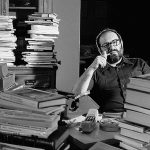
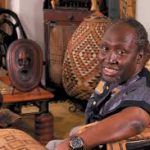
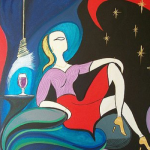
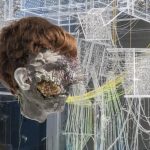
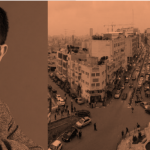
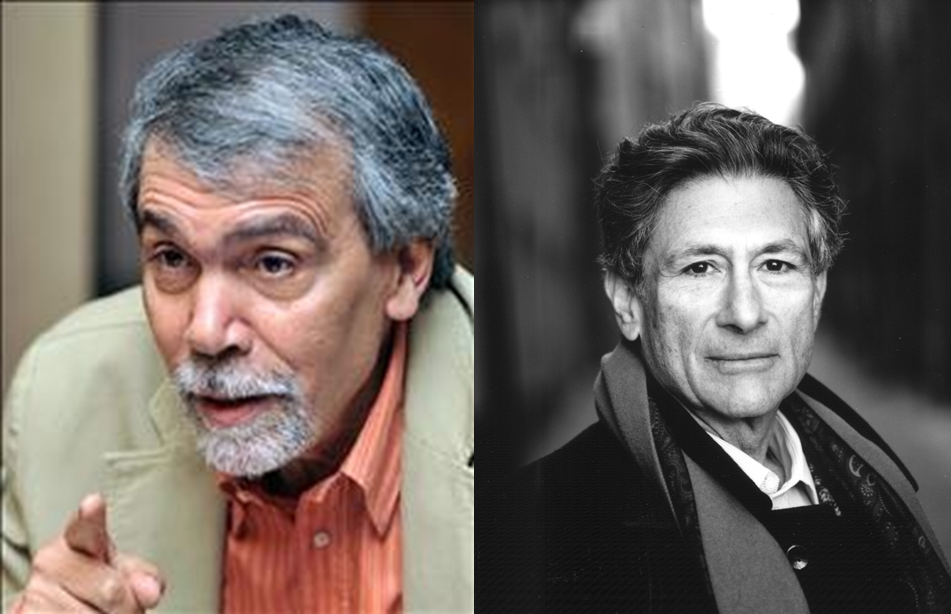
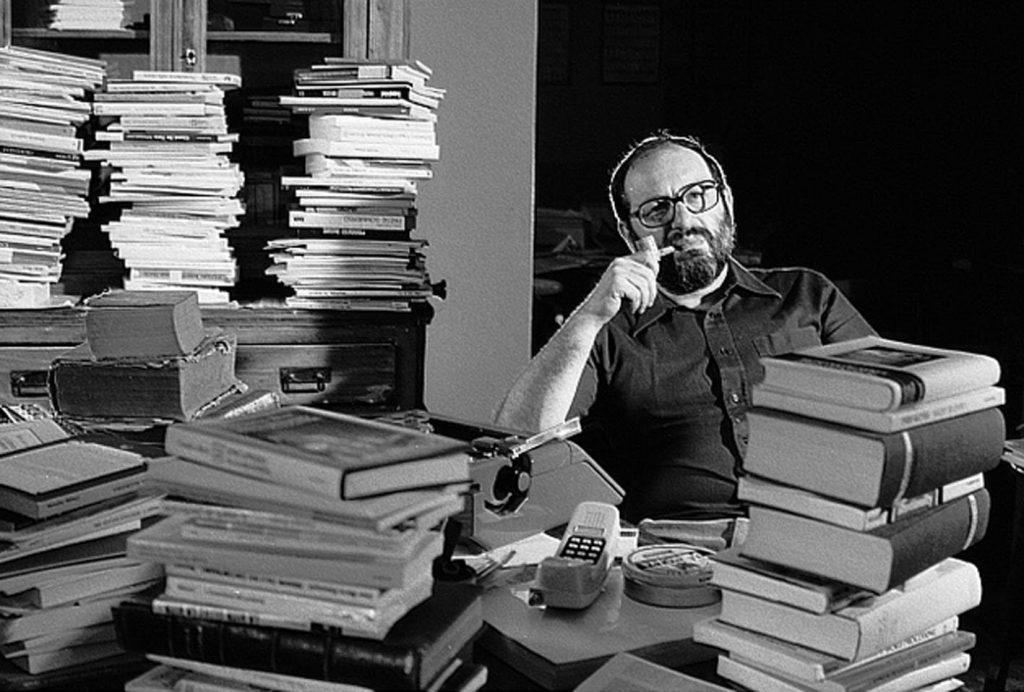
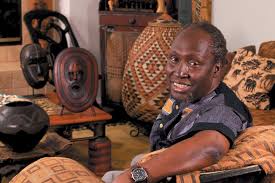
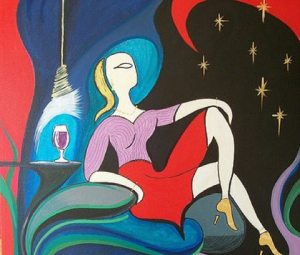
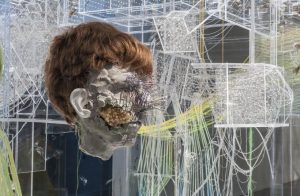
A Moment in Ramallah / John Berger
Orientalism is a cultural and a political fact / Edward Said
Befriending Edward Said